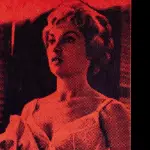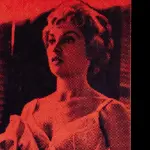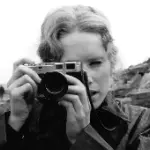"Beef" narrates the account of a road rage episode that happens between two individuals from radically different social spheres in Los Angeles. Danny Zhou (Steven Yeun) is a contractor who suffered misfortune, and his resentment leads him to confront Amy Liu; on the other hand, Amy Liu (Ali Wong) is a successful self-made businesswoman with an unconventional way of life. This profound and emotive dark comedy delves into their growing animosity, which ultimately causes their existence and connections to crumble.
In the series, each episode's title is a famous quote, either from classic literature or cinema, that reflects the characters' sufferings and their state of mind. Now let’s delve into the quotes and try to understand each episode's psychological and philosophical theme.
Check part 1 here:https://www.peliplat.com/en/article/10004103
Episode 6: “We Draw a Magic Circle”

We draw a magic circle and shut out everything that doesn’t agree with our secret games. Each time life breaks the circle, the games turn grey and ridiculous. Then we draw a new circle and build a new defense. — Ingmar Bergman
This quote from Ingmar Bergman describes the way humans create their own private worlds or realities to protect themselves from the harshness of life. These private worlds can be seen as the "magic circle" in which people retreat and engage in activities that bring them joy, comfort, and a sense of purpose.
However, when life inevitably intrudes on these circles, it can disrupt the sense of safety and pleasure that these games provide. Suddenly, the games seem trivial and unimportant, and the world outside the circle becomes overwhelming and threatening. In response, individuals may create a new circle, either by finding new ways to play the same games or by exploring new activities and interests altogether.
humans have an innate tendency to create their own private worlds and these worlds serve as a defense mechanism against life's unpredictability and chaos. However, when these worlds are breached, individuals must adapt and create new defenses to maintain their equilibrium and sense of well-being.
Edwin had always dominated the annual basket game in his magic circle, but when Danny and his brother joined the game uninvited, they disrupted Edwin’s game. As a result, Edwin not only lost the game but also his cool.
Issac, Danny's cousin, had been managing their team all along, using his cunning to get money, women, and attention for himself. He had his own magic circle where he reigned supreme. However, after Danny betrayed him, Issac found himself imprisoned and lost everything.
At the same time, this episode not only discusses how our own self-drawn magic circle is like a safe zone for us but also this magic circle can imprison us. It also emphasizes that by stepping outside of our individual safe zones, we can create meaningful change and make improvements.
In June's (Amy’s daughter) case, she was afraid to confess to her parents that she stole candy because she believed they would punish her. This was a self-imposed limitation, but once she confessed, her parents did not scold her and she no longer had to live in fear of lying.
When Danny betrayed his cousin Isaac and became the leader of the team after Isaac was imprisoned, he gained money, cheers, and attention. Similarly, Amy was able to let go of the past and both her family and career prospered.
Just like Amy's mother-in-law says: “All you have is perception, there’s no objective truth, you create the truth you want to inhabit”
This statement suggests that everything we experience and believe to be true is filtered through our own subjective perception. Objective truth, therefore, does not exist in an absolute or universal sense, but rather it is constructed by individuals based on their own interpretation of reality。 Individuals have the power to shape their own reality by choosing to perceive things in a certain way. In other words, if you want to live in a particular reality or create a certain truth, you need to focus your attention on the aspects of reality that support that belief.
However, it's important to acknowledge that while perceptions play a significant role in shaping one's beliefs and experiences, they are not always accurate reflections of reality. It's possible for our perceptions to be influenced by biases, assumptions, and incomplete information. Thus, it's essential to remain open-minded and recognize that our subjective perceptions may not always align with objective reality.
Episode 7: “I Am a Cage”

I am a cage, in search of a bird. — Franz Kafka
This quote by Franz Kafka is a metaphor that represents a common human situation where a person is lonely and searching for something or someone to fill their emptiness.
In this metaphor, the cage represents the person who feels trapped, restricted or limited in their life. Meanwhile, the bird represents the thing that the person is searching for, which could be a sense of purpose, meaning, fulfillment, love, etc. The bird symbolizes the hope and desire that the person has for finding something that will make them feel complete and free from the cage of their loneliness. This quote suggests that life can often feel unfulfilling and empty unless we find something or someone to bring joy and meaning to our lives.
At the beginning of the episode, everything appears to be flawless as Daniel and Amy's lives are finally heading in the right direction. Amy successfully closes a deal and earns a substantial amount of money, allowing their family to finally live comfortably. However, things take a turn when Amy's husband confesses about his secret spiritual affair with Mia, causing her to question their relationship.
Meanwhile, Daniel has never been more financially stable, but the moral sacrifices he made to get there leave him feeling deeply guilty, and he cannot confide in anyone about what happened. Despite being in the center of attention in his “magic circle”, he still feels extremely lonely and seeks someone who truly understands his inner pain and struggles. He unconsciously reaches out to George, Amy's husband, and secretly approaches Amy, possibly sensing that they are the same and can truly comprehend each other. With Danny discovering that Amy had slept with his brother to revenge him, their enmity has been reignited.
Episode 8: “The Drama of Original Choice”

Moral choice is free, and therefore unforeseeable. The child does not contain the man he will become. Yet, it is always on the basis of what he has been that a man decides upon what he wants to be. He draws the motivations of his moral attitude from within the character which he has given himself and from within the universe which is its correlative. Now, the child set up this character and this universe little by little, without foreseeing its development. He was ignorant of the disturbing aspect of this freedom which he was heedlessly exercising. He tranquilly abandoned himself to whims, laughter, tears, and anger which seemed to him to have no morrow and no danger, and yet which left ineffaceable imprints about him. The drama of original choice is that it goes on moment by moment for an entire lifetime, that it occurs without reason, before any reason, that freedom is there as if it were present only in the form of contingency. This contingency recalls, in a way, the arbitrariness of the grace distributed by God in Calvinistic doctrine. Here too there is a sort of predestination issuing not from an external tyranny but from the operation of the subject itself. Only, we think that man has always a possible recourse to himself. There is no choice so unfortunate that he cannot be saved. — Simone de Beauvoir
In her book "The Ambiguity of Ethics," philosopher Simone de Beauvoir discussed how our present choices are predetermined by both our past and upbringing. In this passage, de Beauvoir is reflecting on the concept of moral choice and its impact on the development of an individual's character. She argues that moral choice is free and therefore unpredictable and that a person's choices are influenced by their past experiences and the universe in which they exist.
De Beauvoir points out that as children, we make choices without fully understanding the consequences of those choices. We give ourselves character traits and create a universe around us, little by little, without realizing how these choices will shape our future selves. However, as we grow older and become more aware, we draw motivation from these choices to form our moral attitudes and determine what kind of person we want to be.
Episode 8 delves into Amy's and Danny's respective pasts, from birth to childhood to adulthood. Observations of their upbringing help us understand why they now find themselves mired in their own darkness.
Amy witnessed her father's infidelity when she was young but chose not to tell her mother in order to keep the family from falling apart. Her childhood experiences taught her that speaking out would only result in losing more. Similarly, Amy believes that unconditional love does not exist because her father always emphasized the sacrifices he made for the family, including sacrificing financially. During a recent dinner with her parents, her father insisted “We sacrifice everything for you, what do we get in return,” making material resources the basic form of care rather than "love."
Danny also carries the burden of not being able to repay his parents in a cultural and moral sense. Instead of being driven by selfless love between parents and children, the relationship is exploited as a tool for moral manipulation. The parents offer material goods to their children in exchange for obedience. This ultimately becomes a kind of bondage for children. Everything seems to be conditional; all relationships seem to be the simplest exchange of material interests, including those between parents, children, and lovers. Children who grow up in this environment gradually become accustomed to suppressing their emotions and individual demands in order to maintain their relationship with their parents. This is also a common problem faced by Asian families.
All of this leads to Amy constantly suppressing herself and not choosing to express her confusion because she believes that only self-sacrifice can maintain the family relationship, just like her parents did in the past.
When Danny was bullied in school, he only had his little brother to rely on, so he tried everything to keep him close. His anxiety and fear of losing loved ones turned into his strong desire to control and dominate his brother to keep his accompany, which resulted in him secretly throwing away all of his brother’s university application letters. He lost the opportunity to express his true wishes due to the suppression of his emotions and could only destroy himself and others in order to achieve his own intentions.
De Beauvoir also emphasizes the importance of taking responsibility for our actions and the influence of our environment on our choices. She suggests that our choices are arbitrary, but we always have the ability to choose differently and make changes to our character and universe. No matter how unfortunate our choices may be, we always have the potential to redeem ourselves and live a moral life.
Amy and Daniel eventually choose to redeem themselves in the following episodes. Amy ultimately chooses to be honest with her husband, even if it means losing the family she desperately wanted to protect. Daniel also confesses the incredibly selfish and shameful things he's done over the years to try and keep his brother by his side, willing to destroy his brother's life just to avoid feeling lonely himself. Finally, he makes the moral choices and chooses to let go, and his brother can finally have a life of his own.
Episode 9: “The Great Fabricator”

Attachment is the great fabricator of illusions; reality can be obtained only by someone who is detached. — Simone Weil
This quote is from Simone Weil, a French philosopher, and mystic. She believed that attachment to things, people, or ideas can create illusions or distortions in our perception of reality. When we are attached to something, we see it through a subjective lens that is colored by our emotions, desires, and biases.
Weil argues that true understanding of reality requires detachment - the ability to step back from our attachments and see things objectively. This means being willing to let go of our preconceptions, biases, and emotional attachments, in order to see things as they truly are.
In this episode, Both Daniel and Amy are drifting away from their loved ones: Danny confesses to Paul that he threw away Paul's college application letters years ago because he wanted Paul to stay with him; George decides to leave Amy with their daughter because Amy's uncontrollable actions have jeopardized their family's safety.
Danny lost his younger brother, while Amy lost her family, which were the things they had been clinging to all along. Losing these most important things has led to anger and resentment in both of them, and what follows will be the objectivity to see reality and enlightenment. With the departure of their loved ones, they finally come to realize the harm and chaos they have created.
Episode 10: “Figures of Light”

One does not become enlightened by imagining figures of light, but by making the darkness conscious. ― C.G. Jung
This quote by Carl Jung, a Swiss psychiatrist and psychoanalyst, highlights the importance of facing one's own inner darkness in order to attain true enlightenment or self-awareness.
Imagining figures of light may represent a desire for purity and perfection, but it does not necessarily lead to a deeper understanding of oneself. To become truly enlightened or self-aware, we must confront our inner demons, fears, and flaws. By making the darkness conscious, we bring awareness to our hidden or suppressed emotions, thoughts, and behaviors. This can be uncomfortable and difficult, but it helps us to gain a more complete understanding of ourselves, our motivations, and our patterns.
Only by acknowledging and accepting our whole selves, can we achieve true enlightenment and growth. Darkness is not inherently bad or evil but simply a part of who we are. When we embrace it with compassion and curiosity, we can learn from it and use it to become more authentic and whole beings.
In the final episode, Amy and Danny’s cars collide and both are stranded in the wild together. Amy and Danny experience hallucinations after eating some poisonous berries. With their guards down due to the hallucinations, they confess to each other and understand each other's situation and struggles.
In a hallucination state, they come up with a theory that raising children is unloading the parents’ mental garbage onto the next generation. The more toxins you have, the more poisonous your offspring will be. But you can only hope that your descendants can make up for your shortcomings, which could be a naive dream that adds to the cycle of suffering. Instead of feeling guilty and keep suppressing their true selves, they embrace their darkness and accept who they are.
Under the influence of the poisonous berries, a miracle happens. Amy and Danny seem to have finally achieved a deep soul connection, without distinction between you and me. They release themselves from years of self-suppression, achieving a level of understanding and acceptance that neither Amy and her husband nor Daniel and his brother have ever achieved.
All human beings share a common essence, but our varied identities are shaped by the environment and culture we live in. It's possible that by relinquishing our selfish egos and showing acceptance, compassion, and concern for both ourselves and others, can we find a way out for all troubled souls.











































Share your thoughts!
Be the first to start the conversation.